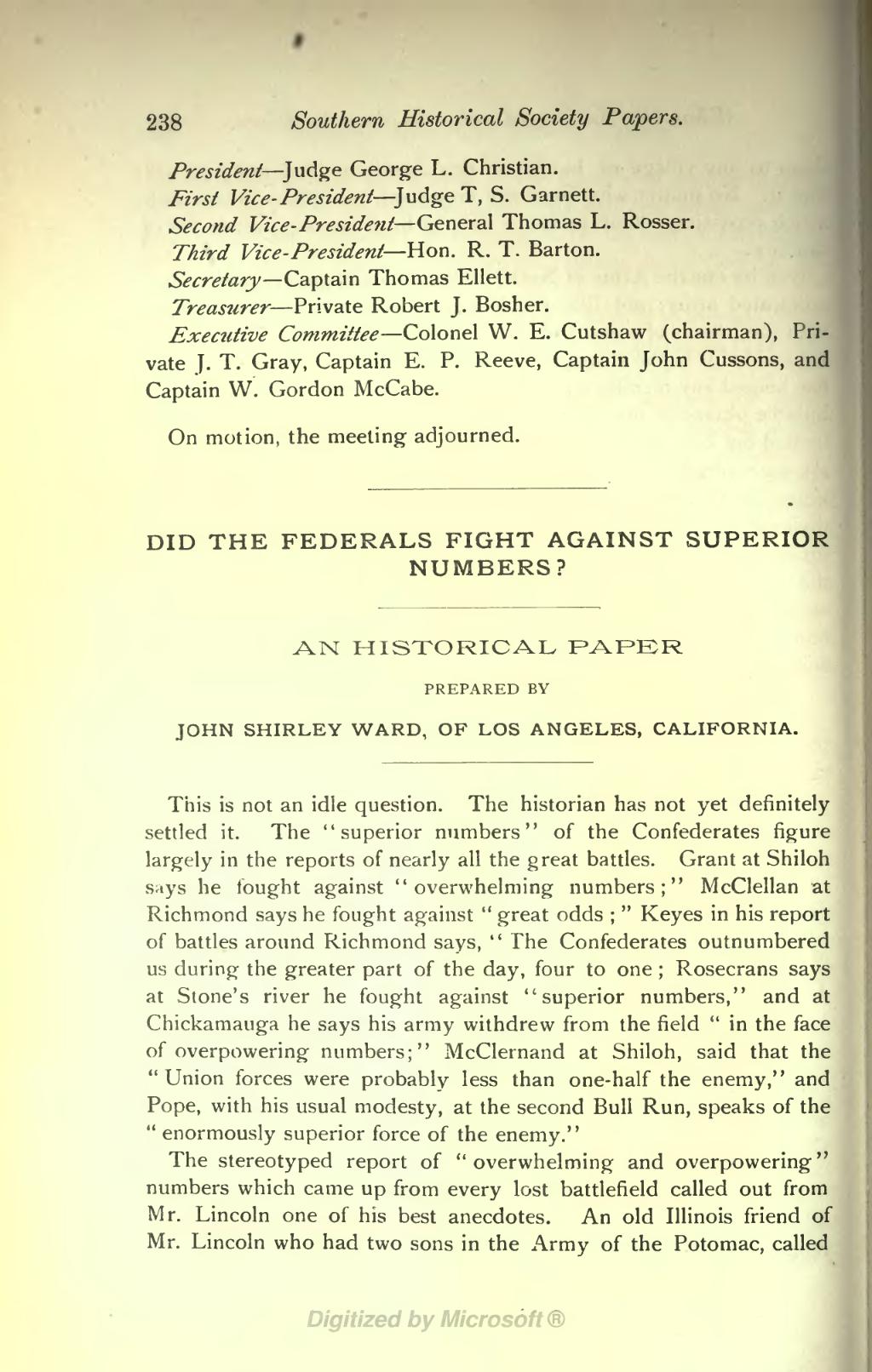238 Southern Historical Society Papers.
President Judge George L. Christian.
First Vice- President Judge T, S. Garnett.
Second Vice -President General Thomas L. Rosser.
Third Vice -President Hon. R. T. Barton.
Secretary Captain Thomas Ellett.
Treasurer Private Robert J. Bosher.
Executive Committee Colonel W. E. Cutshaw (chairman), Pri- vate T. T. Gray, Captain E. P. Reeve, Captain John Cussons, and Captain W. Gordon McCabe.
On motion, the meeting adjourned.
DID THE FEDERALS FIGHT AGAINST SUPERIOR
NUMBERS?
AN HISTORICAL
PREPARED BY JOHN SHIRLEY WARD, OF LOS ANGELES, CALIFORNIA.
This is not an idle question. The historian has not yet definitely settled it. The "superior numbers" of the Confederates figure largely in the reports of nearly all the great battles. Grant at Shiloh says he fought against "overwhelming numbers;" McClellan at Richmond says he fought against " great odds ; " Keyes in his report of battles around Richmond says, " The Confederates outnumbered us during the greater part of the day, four to one ; Rosecrans says at Stone's river he fought against "superior numbers," and at Chickamauga he says his army withdrew from the field " in the face of overpowering numbers;" McClernand at Shiloh, said that the "Union forces were probably less than one-half the enemy," and Pope, with his usual modesty, at the second Bull Run, speaks of the " enormously superior force of the enemy."
The stereotyped report of "overwhelming and overpowering" numbers which came up from every lost battlefield called out from Mr. Lincoln one of his best anecdotes. An old Illinois friend of Mr. Lincoln who had two sons in the Army of the Potomac, called
